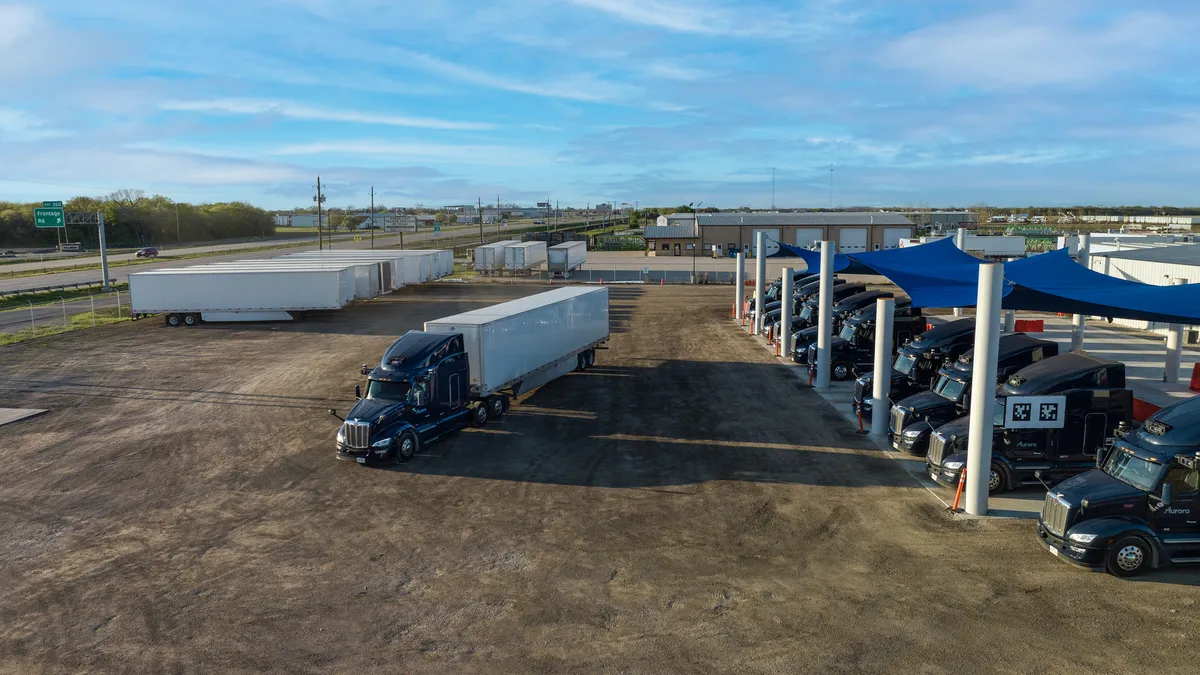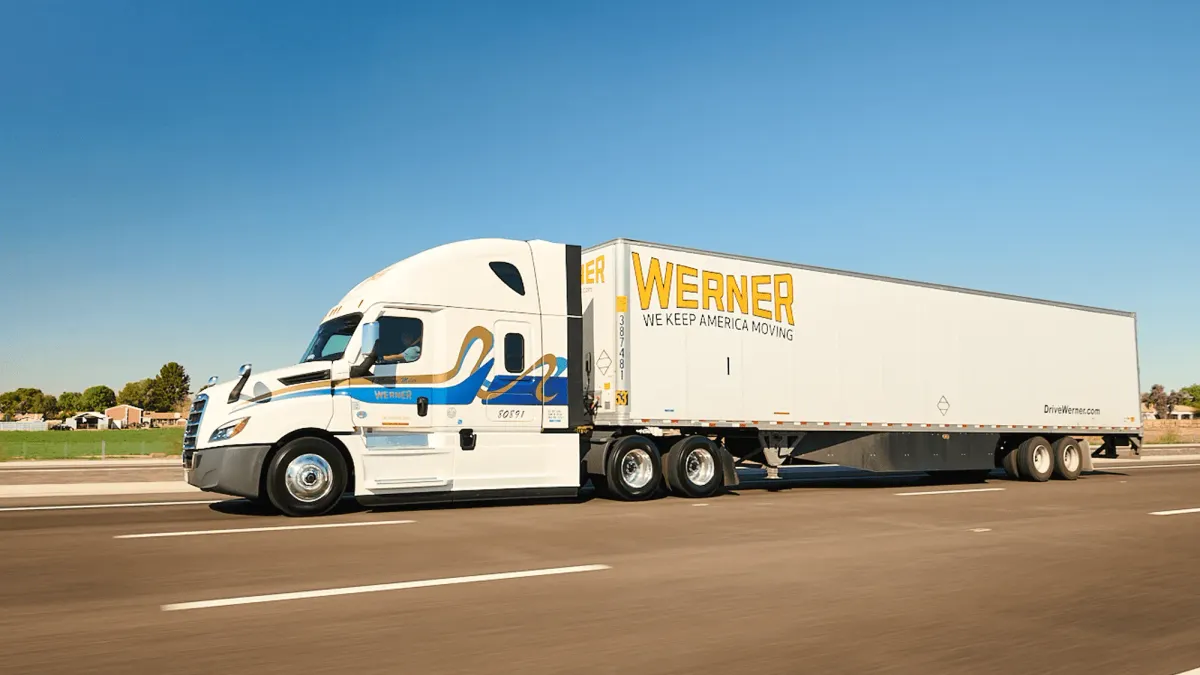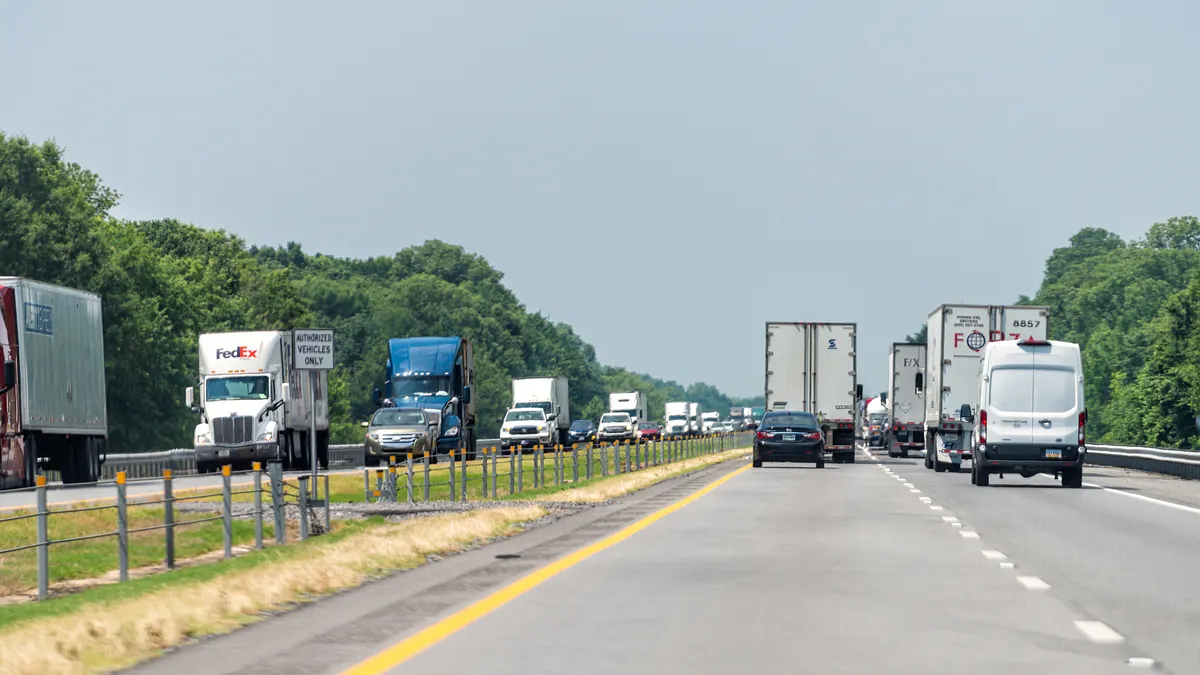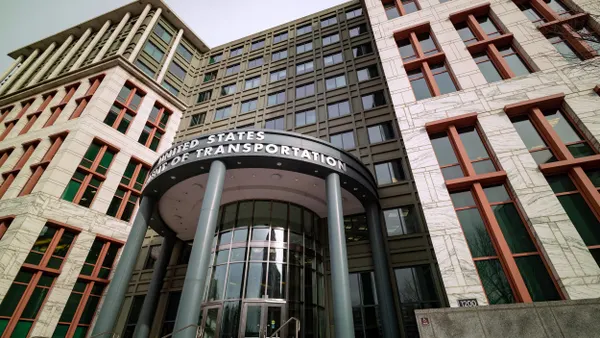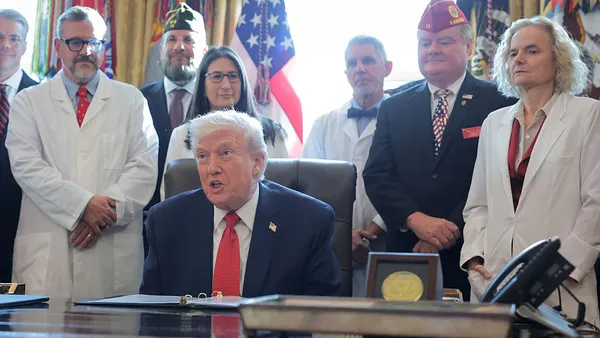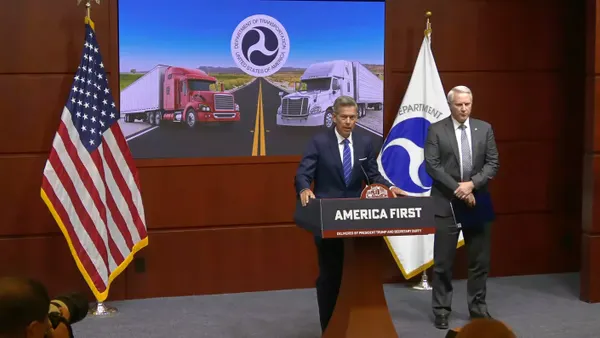Dive Brief:
- The first terminal for Aurora Innovation’s autonomous trucking lane in Texas is commercial ready, the company announced Thursday in a news release.
- The terminal in Palmer, Texas, has already handled six months of AV truck traffic. The pilot program has tripled its capacity, hauling 50 customer loads per week across two commercial routes.
- The self-driving technology company plans for a Houston terminal to be commercial ready in Q3, “which will enable end-to-end autonomous operation on its launch lane” between Dallas and Houston, the company said.
Dive Insight:
Autonomous trucks have been pulling freight for pilot customers, which include FedEx, Schneider National, and Uber Freight. The vehicles have hauled loads with humans onboard supervising the driving for pilot partners.
“As the company prepares for the commercial launch of Aurora Horizon, its autonomous trucking service, it will leverage a network of terminals to house, maintain, prepare, inspect, and deploy autonomous trucks between destinations,” the company said in its annual report.
Aurora has been ratcheting up its spending as it aims for a launch in late 2024.
Net losses have ballooned from $214 million in 2020 to $755 million in 2021 and $1.7 billion in 2022, according to its annual report. “We believe that we will continue to incur operating and net losses each quarter until at least the time we begin commercial operation of our self-driving technology,” the company said, and future losses will grow as it scales development and commercializes products.
With a service business model, Aurora hopes to make the largest impact in the fastest way possible, according to the company. That aligns with its vision to neither own nor operate a large number of vehicles, so it can earn revenue on a fee-per-mile basis.
“Self-driving technology will fundamentally transform how we move goods,” Kendra Phillips, VP of Service Delivery at Aurora, said in a statement.
Carriers have noted the potential for the technology, exploring Aurora’s and other vendors’ offerings. Werner Enterprises, for example, has connected with multiple self-driving companies, including Aurora, Embark Technology and Kodiak Robotics, to assess how technology efforts are progressing.
Aurora’s partnerships also include Paccar and Volvo, and with OEMs handling manufacturing, Aurora expects its service model will also allow it to scale more rapidly.
“We plan to initially launch Aurora Horizon in Texas, which has the largest freight market in the U.S., a favorable business and regulatory environment, and moderate weather,” the company said. “From there, we plan to expand to other key freight corridors, which we will prioritize based on commercial, technical, and regulatory considerations.”


